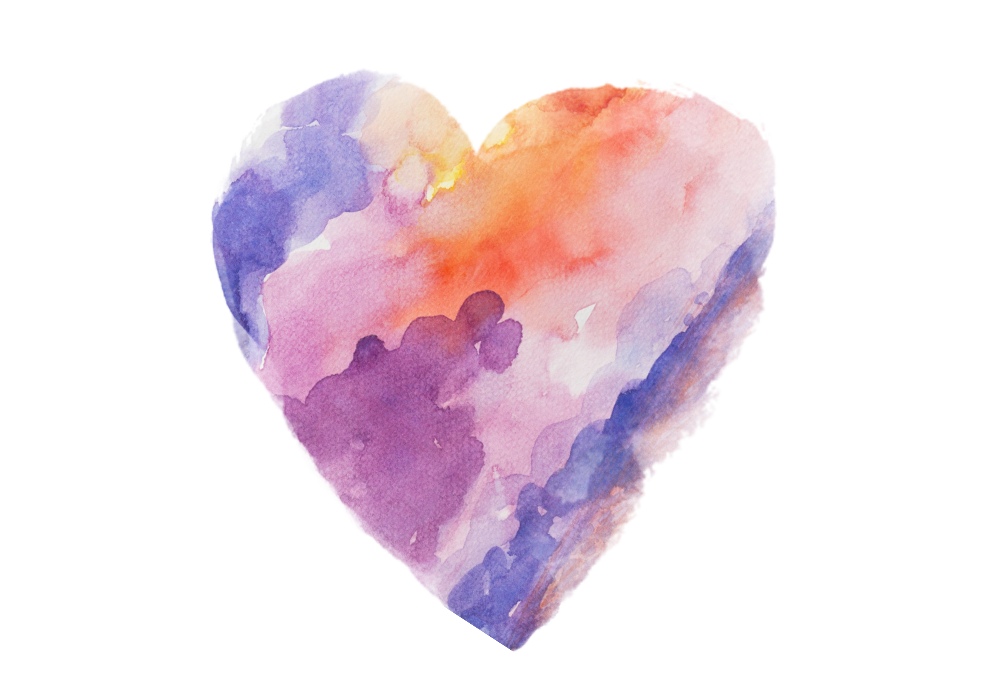How Do You Grieve?
By: Kaytea Hendricks, MA, LPCC
Join the upcoming workshop: https://heartlightcenter.org/events/wholehearted-grief-nm-sept/
A client who was navigating a difficult breakup once told me this should be a first (or maybe second or third) date question — and I haven’t stopped thinking about it since. What a way to really dive in and get to know someone. Should we be shy about sharing this kind of experience and how we resource ourselves? In a dating context, the answer might reveal a lot. The key is to receive that information without making harsh judgments, while still noticing potential “red flags” if it signals that this person doesn’t yet have coping skills or resourcing in place. And then, the bigger question: what do we do with that insight once we have it?
Grief is at the center of life. It lives in every ending, every change, every version of ourselves we’ve had to let go of. And yet, so few of us were ever taught how to grieve. Was healthy grieving ever modeled for you? Were you given space for your emotions — let alone shown how to be with others in theirs?
Grieving is a skill — one we acquire slowly, painfully, often by necessity. It’s the work of naming, coping, and staying present with something we’d rather avoid. How we grieve — or avoid grief — shapes everything: how we love, how we move through change, how we show up for ourselves and for each other.
The author Martín Prechtel, in his book The Smell of Rain on Dust, writes about grief in a way that has stayed with me. He says that as we experience loss, the well of our grief deepens and expands — and on the opposite side of that same well is love, joy, and freedom. When the well of grief grows deeper, so does our capacity for these other states of being. The more we allow ourselves to feel and tend to grief, the more we open ourselves to the fullness of living. While easier said than felt, especially in deep sadness, this thought has helped me refocus in moments of grief and sorrow.
This, to me, is the heart of “wholehearted” living — bringing not just ourselves, but our whole selves, our whole hearts, to life’s moments. When we can do that, even when it’s uncomfortable, it ultimately feels more real, more nourishing.
So imagine asking someone: “How do you grieve?”
If they could answer thoughtfully, with self-awareness and resources to draw on, we might learn that they’ve lived, loved, and learned how to tend to pain. And if they said, “I haven’t had a lot of losses”? That tells a story too — about their relationship to emotional depth, risk, and perhaps the parts of themselves they haven’t yet met.
Grief isn’t just about loss. It’s about living. And learning to grieve well is one of the most courageous and connective things we can do.
This is part of why I created Wholehearted Grief, an experiential support workshop where we’ll slow down, share, move, and tend to the parts of ourselves that carry sorrow.
In our time together, we’ll:
- Practice actively slowing down and listening to another human.
- Explore the theories and frameworks that can help make sense of grief.
- Spend time both in thought (for those who like to stay in our heads a bit more) and in the body, feeling with the heart.
We know that healing cannot happen in isolation. Every story deserves to be heard, and having a compassionate witness is one of the most powerful catalysts for healing. Doing grief work in a supportive group of others walking similar paths can accelerate the process. I like to think of people as mirrors — the people in our lives offer us reflections of ourselves, helping us grow. I often see individual therapy this way: a powerful mirroring process that unfolds when safety and trust are established. But group work takes this even further. Now we’re not just looking into one mirror — we’ve added a disco ball effect, with multiple reflections expanding our capacity for depth and healing. Because we are wired for connection, and grief is best carried together.
All are welcome.

